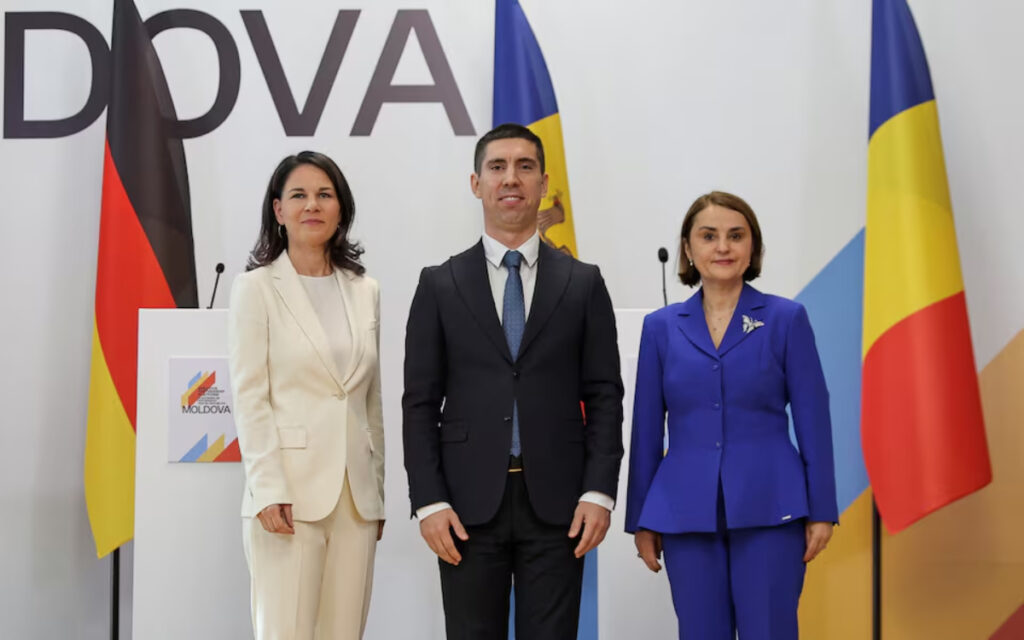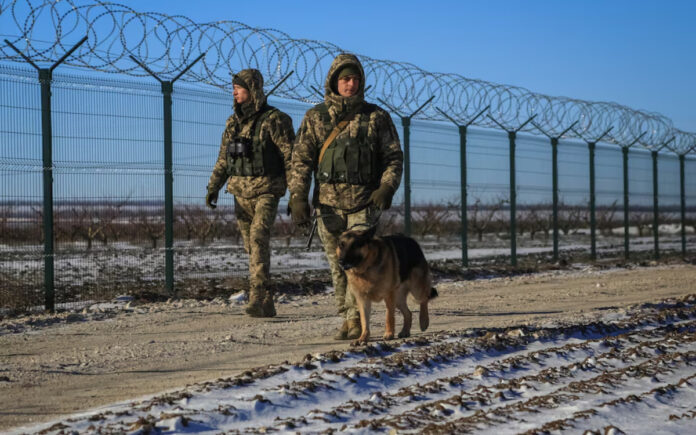Chișinău: German Foreign Minister Annalena Baerbock has warned that Moldova’s stability is closely tied to the outcome of the conflict in Ukraine. Speaking at the Moldova Partnership Platform conference in Chisinau, Baerbock emphasized that supporting Ukraine is crucial for ensuring the survival of its neighbor, Moldova. “Everything that we do to support Ukraine also means fostering stabilisation with regards to Moldova,” Baerbock stated. “It is clear what the greatest concern of the people here is: that if Ukraine falls, Moldova is the next country in line.”
Baerbock’s visit to Chisinau was alongside counterparts from France, Romania, Poland, the Netherlands, and Lithuania. The Moldova Partnership Platform was initiated by Germany, a leading military supporter of Ukraine, in response to Russia’s 2022 invasion. This initiative aims to stabilize Moldova’s economy and counter Russian disinformation.

Moldova, which has a Romanian-speaking majority and a significant Russian-speaking minority, has experienced political shifts between pro-Russian and pro-Western administrations since the Soviet Union’s collapse. Currently, it is led by a strongly pro-Western government. Russia maintains troops in the breakaway region of Transnistria, where pro-Russian separatists declared independence from Chisinau in the early 1990s.
Moldovan President Maia Sandu, who has accused Russia of attempting to overthrow her government, highlighted the challenges Moldova continues to face. “Russia’s war against Ukraine, which we condemned from the very first day, has caused enormous damage to our economy,” Sandu said. She further stated, “The uncertainty caused by the war continues to seriously hinder our economic development and will continue to hinder it as long as the war lasts.”
Also Read | Lebanon Rocked by Deadly Pager Explosions: 8 Dead, Thousands Wounded
During the conference, agreements were signed to provide Moldova with over 300 million euros ($334 million) in loans and 80 million euros in grants, according to the Moldovan government’s press service. This financial assistance is part of the broader efforts to stabilize the country’s economy and promote its security.
The conference also saw allies expressing their support for Moldova’s ambition to join the European Union. Under President Sandu’s leadership, Moldova aims to join the EU by 2030. France, Germany, and Poland, forming the Weimar Triangle, reiterated their “unwavering and continuous support for Moldova” in its EU accession bid, according to a draft resolution seen by Reuters. These countries also pledged to support the Moldovan armed forces both bilaterally and as EU partners.
In May, Moldova signed a security and defense partnership with the EU, becoming the first country to do so, further cementing its pivot toward Western alliances.



